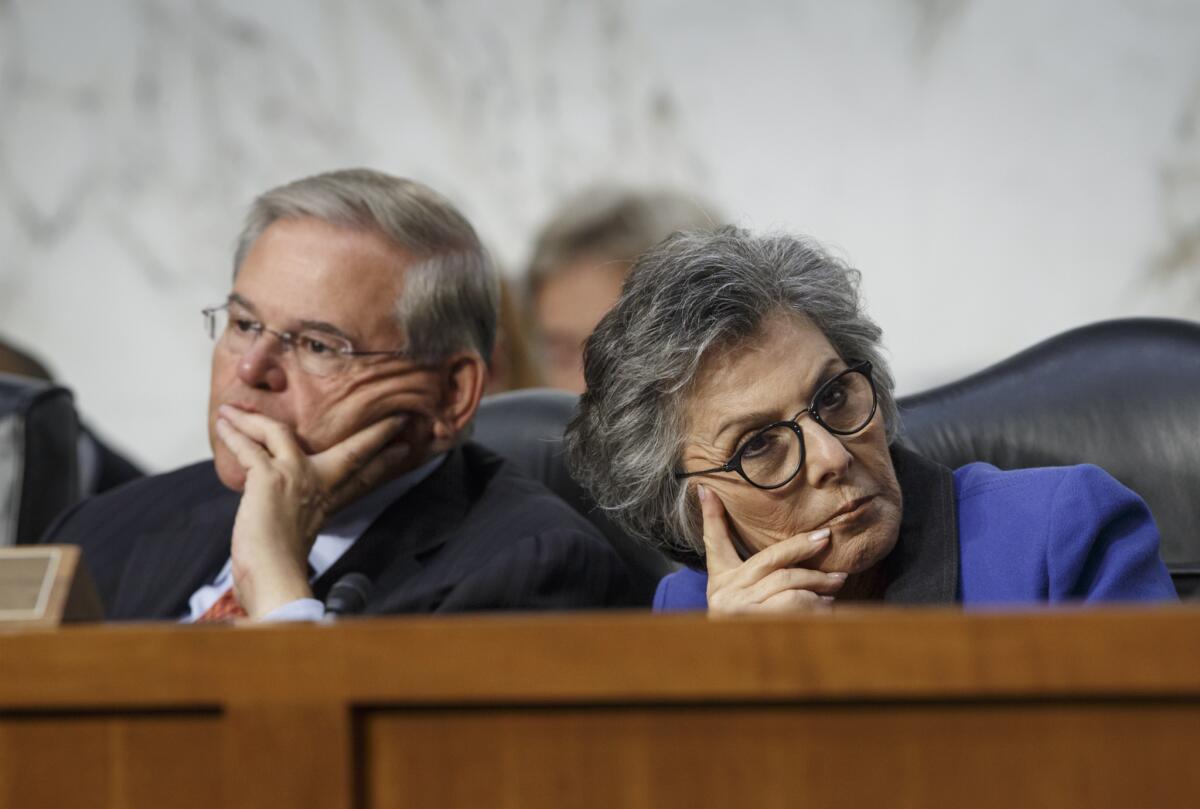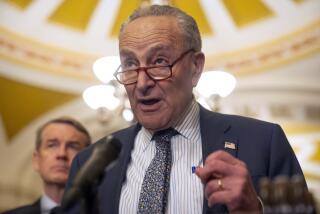Congress mostly approves of airstrikes in Syria so far

Congress found itself in a familiar position after President Obama ordered airstrikes on terrorists in Syria -- clamoring for a legislative role in the process, but perhaps relieved of not being asked to take one.
Members of Congress registered mostly approval Tuesday of the military campaign, which targeted not only Islamic State, but also the emerging Khorasan Group that officials said posed a more imminent threat to the United States and the West. Lawmakers particularly praised the administration’s ability to assemble a coalition of Arab-state allies to join the U.S.-led mission.
At the same time, those who have resisted what many worry could become another long and costly Mideast entanglement largely withheld criticism in the immediate aftermath of U.S. troops engaged in overseas action.
“I support the airstrikes launched by the president,” said House Speaker John A. Boehner (R-Ohio), “understanding that this is just one step in what must be a larger effort to destroy and defeat this terrorist organization.”
Rep. Nancy Pelosi (D-San Francisco), the House minority leader, commended the president “for his strong leadership in building the broad coalition that joined U.S. forces in airstrikes on ISIS targets in Syria.”
With the House and Senate in recess so lawmakers can campaign for the November elections, Obama’s willingness to orchestrate military action without Congress may reverberate across the campaign trail.
The president’s success in targeting terrorists abroad could boost Democratic candidates in military-heavy conservative states. Any shortcomings in the strategy will certainly result in criticism of Obama’s approach and also heighten concerns from tea party Republicans of executive branch overreach.
“The president still has not presented to the American people his long-term objectives or vision for what success looks like in Syria,” said Sen. James Inhofe of Oklahoma, the top Republican on the Armed Services Committee.
Rep. Justin Amash (R-Mich.), a rising leader in the conservative wing in the House, tweeted that GOP leaders “regularly blast Obama’s unlawful (executive) orders, yet they applaud his most egregious” -- going to war without a vote of Congress.
Before leaving for the campaign trail, Congress sidestepped a vote on whether the administration can conduct airstrikes under War Powers resolutions passed in 2001 and 2002, the run-ups to the Afghanistan and Iraq wars.
Instead, the House and Senate passed a more modest request to train and equip moderate Syrian rebels in the fight against Islamic State, also known as ISIS.
Lawmakers have vowed to play a larger role -- after the midterm elections.
“We continue to be more & more involved in another Middle East war with no military solution,” tweeted left-leaning Rep. Barbara Lee (D-Oakland). “Congress must debate and vote on all options.”
But the potential of an imminent threat of attacks on the United States from Khorasan, an Al Qaeda-aligned group whose strongholds in northwestern Syria were the first targets of Monday night’s strikes, may give even war-weary lawmakers pause -- at least for now.
Potential Republican presidential candidates who have been critical of Obama’s strategy, Sen. Rand Paul (R-Ky.) and Sen. Ted Cruz (R-Texas), did not immediately weigh in Tuesday.
“We cannot stand idly by while barbaric groups threaten America and the entire world,” said Sen. Barbara Boxer (D-Calif.), a liberal voice of support for the president.
Polls showed public support for military action against Islamic State, but that may change with a prolonged military battle and push Congress to become more engaged, as many lawmakers have vowed in November.
“This will be a long, difficult campaign,” said a joint statement from Sen. John McCain (R-Ariz.) and Sen. Lindsey Graham (R-S.C.), who have criticized Obama’s strategy and said the overnight bombings “should be just an opening salvo.”
Getting broader congressional buy-in remains politically difficult, a thorny task of melding a rare bipartisan coalition from a divided Congress.
Until then, Congress will have its say from lawmakers’ far-flung home districts, if it decides to say much at all.
For the latest from Congress, follow @LisaMascaroinDC on Twitter.
More to Read
Get the L.A. Times Politics newsletter
Deeply reported insights into legislation, politics and policy from Sacramento, Washington and beyond. In your inbox three times per week.
You may occasionally receive promotional content from the Los Angeles Times.







